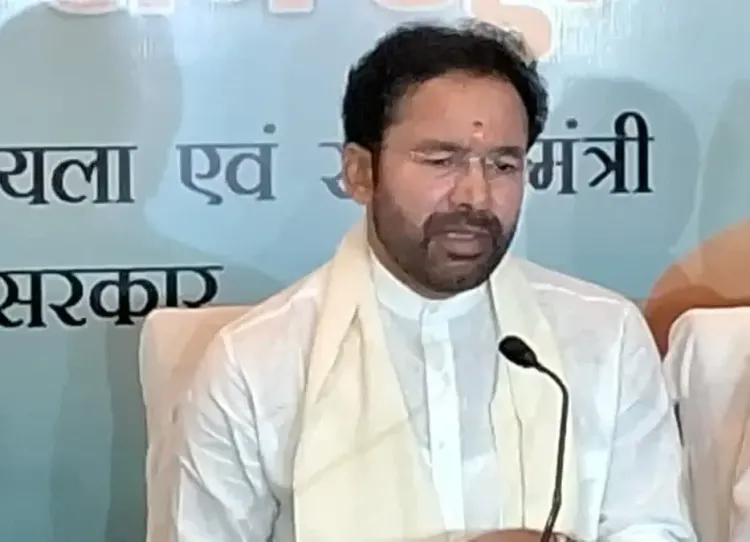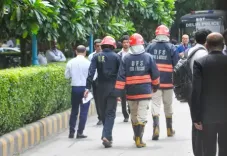Will Coal Mine Workers Receive a Dress Code and Insurance Cover of Rs 1 Crore from September 17?

Synopsis
Key Takeaways
- Insurance cover for regular coal workers increased to Rs 1 crore.
- Contract workers receive coverage of up to Rs 40 lakh.
- Ex gratia amount for regular workers raised to Rs 25 lakh.
- A uniform dress code will be implemented for all employees.
- Focus on energy security and critical minerals for sustainable growth.
Ranchi, Sep 12 (NationPress) In a significant move for the coal sector, Union Coal and Mining Minister G. Kishan Reddy has unveiled substantial welfare initiatives for both regular and contract workers, including a boosted insurance coverage and the establishment of a uniform dress code.
During a press briefing held on Friday, the Minister revealed that starting September 17—coinciding with Vishwakarma Puja and Prime Minister Narendra Modi’s birthday—all regular employees working within Coal India mines will benefit from an enhanced insurance policy worth Rs 1 crore.
Contract workers will also see improvements, with coverage reaching up to Rs 40 lakh. The ex gratia amount for regular staff has been increased from Rs 15 lakh to Rs 25 lakh.
“For the first time since India gained independence, a uniform dress code will be implemented across all coal mines to provide workers with a dignified identity. Coal India will supply these uniforms,” Reddy stated.
This dress code will extend to officials within Coal India as well.
Highlighting the successes of the Modi government in the coal industry, the Minister noted that India's coal production has surpassed one billion tonnes for the first time, with Jharkhand playing a crucial role in this achievement.
He pointed out that, in the previous financial year, foreign exchange savings of Rs 60,000 crore were realized by decreasing imports.
Reddy indicated that the government is also concentrating on essential minerals, announcing the launch of the National Critical Minerals Mission with a budget of approximately Rs 32,000 crore to enhance exploration and reduce import reliance. Agreements for lithium and other minerals have already been established with nations like Argentina and Zambia.
Stressing that 74 percent of India's energy still derives from thermal power, the Minister emphasized that ensuring energy security is the government's foremost priority.
Simultaneously, he mentioned ongoing efforts to expand green and solar energy while securing minerals necessary for industries such as steel and cement.






